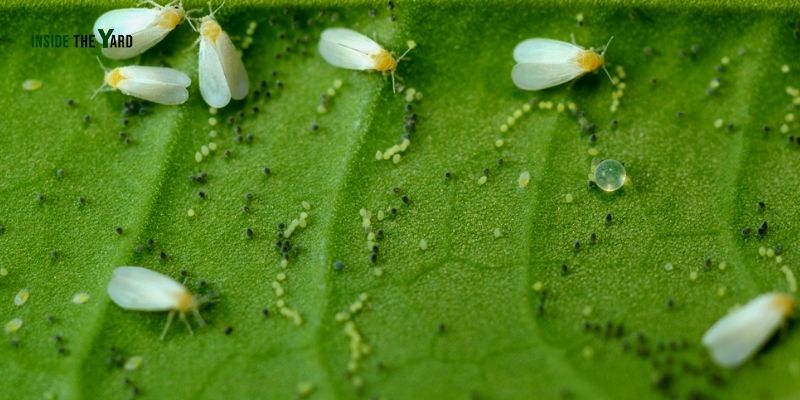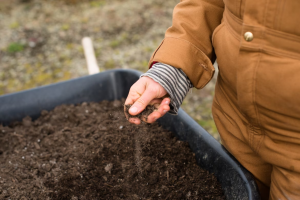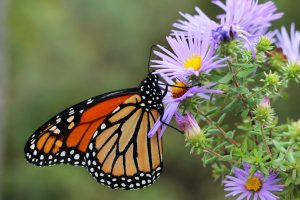How to Stop Insects from Eating My Elephant Ears- 4 Expert Recommendations

How to stop insects from eating my elephant ears? If you have small indoor elephant ears, using bug spray is the most common practice to get rid of insects. If you have some giant elephant ears, there are other techniques besides bug spray.
Here we will discuss which insects attack elephant ears the most and how to repel them, along with some tips and tricks.
Let’s go!
Table of Contents
How to Stop Insects from Eating My Elephant Ears
Before getting started with how to protect elephant ears from insects, let’s see which insects are more likely to attack elephant ears.
Others:Squash bugs, slugs, beetles, sawfly caterpillars, cutworms, and grasshoppers are some other insects that are most likely to attack elephant ears.
Most plant lovers have a never-ending complaint that my elephant ear plant has bugs. So, always keep an eye out for indicators of pest infestation on your plant. Take action as soon as you notice the first signs of an infestation.
Ou can also know in-depth about indoor elephant ear plant problems with effective solutions.
Chemical pesticides might show a quick result, but we all know those are harmful in many ways. So, here we will explore 4 different NATURAL ways to get rid of tiny bugs on elephant ear plant.
Spraying Water
The most basic and easy technique is to spray your plant leaves thoroughly with a forceful stream of water. This will be effective for both aphids and spider mites if your plants are at the initial stage of an attack.
Repeat this process once or twice a week, and continue the same for a couple of weeks. And observe if any insects are coming back. But remember, you need to spray the bottom side of the leaves since that’s where the bugs mostly gather.
| Warning! And also, make sure that the water force is not that strong. If the plant is small or medium-sized, try holding it diagonally upside down to the ground so that the leaves do not break with water pressure. |
Using Neem Oil
Neem oil is the most beloved remedy among plant enthusiasts because it is organic and causes no harm to your plants. Neem oil on elephant ears works like magic to repel aphids, spider mites, thrips, and other bugs that keep coming back.
Make a mixture of 1½ teaspoons neem oil, 1 teaspoon mild liquid soap, and 1-liter water and spray the entire plant with it. Use it once a week until pests are no longer visible. But don’t forget to read the instructions on the label correctly.
Remember that neem oil has a strong smell that you may not like, though the smell is gone when it dries. Also, try not to spray many indoor plants at the time to avoid a smelly situation.
| Warning! Another essential fact about neem oil insecticide is that it will burn the leaves if you put your plant in the sun after spraying it. So, don’t keep your sprayed plants exposed to the sunlight until it dries. |
Releasing Other Predatory Insects
There’s another natural solution on how to get rid of aphids on elephant ears, which is releasing beneficial insects that will kill not only aphids but also other harmful insects. This technique is effective if your elephant ear plants are located outdoors.
Some of the helpful predatory insects are lady beetles, soldier beetles, lacewing larvae, and syrphid flies which can significantly reduce the population of harmful bugs.
Using Horticultural Oil
Insects such as squash bugs, slugs, beetles, cutworms, sawfly caterpillars, and grasshoppers are some of those pests that cause holes in the leaves of elephant ear plants. But slugs are mostly responsible for holes by nibbling on the foliage at night.
To prevent your elephant ear leaves from getting attacked, you need to use an elephant ear bug spray that includes horticultural oil. If you use concentrated oil, dilute it at a 2% – 5% rate and check the label if there is any instruction for mixing other elements.
| Warning! Like neem oil, horticultural oil can also kill your plants if you spray at a high temperature. High humidity levels will also slow down the evaporation process of the mixture. Moreover, avoid applying when the temperature is below freezing. |
A Helpful Tutorial You May Need!
Frequently Asked Questions (FAQs)
Can you leave elephant ears in the ground?
Elephant ears can be placed both indoors and outdoors. However, it will not be able to survive the winter outside. Freezing temperatures harm foliage and cause tuber damage. So, you have to dig up your elephant ears if the weather is harsh and cold and store them indoors.
What bug is eating my elephant ears?
Spider mites and aphids are the two most common pests seen on elephant ears. Besides, insects like thrips, caterpillars, slugs, weevils, and beetles are also seen to be affecting elephant ears.
Why does my elephant ear plant have holes in the leaves?
Insects such as squash bugs, beetles, sawfly caterpillars, slugs, cutworms, and grasshoppers are the most common causes of holes in the leaves of elephant ear plants. But slugs are ones that mostly cause holes by nibbling on the foliage at night. The larger slugs are responsible for the holes, whereas the smaller ones create clearly visible lines by making holes inside the leaves.
How to get rid of bugs eating my plant leaves?
If you have indoor plants, using bug spray is the most common practice to get rid of insects. You can use neem oil insecticides for your houseplant since it is organic and safe. It also works well for outdoor plants, but it can burn the leaves if exposed to sunlight. Releasing other predatory insects in your garden is also a good idea to get rid of harmful insects.
Conclusion
Hope we gave the concise answer to the most asked question, how to stop insects from eating my elephant ears.
Depending on the size and condition of the elephant ear plants, you can choose any of these convenient methods. And the best thing is none of the above-mentioned processes will harm your plant since there’s no use of chemicals.




